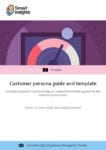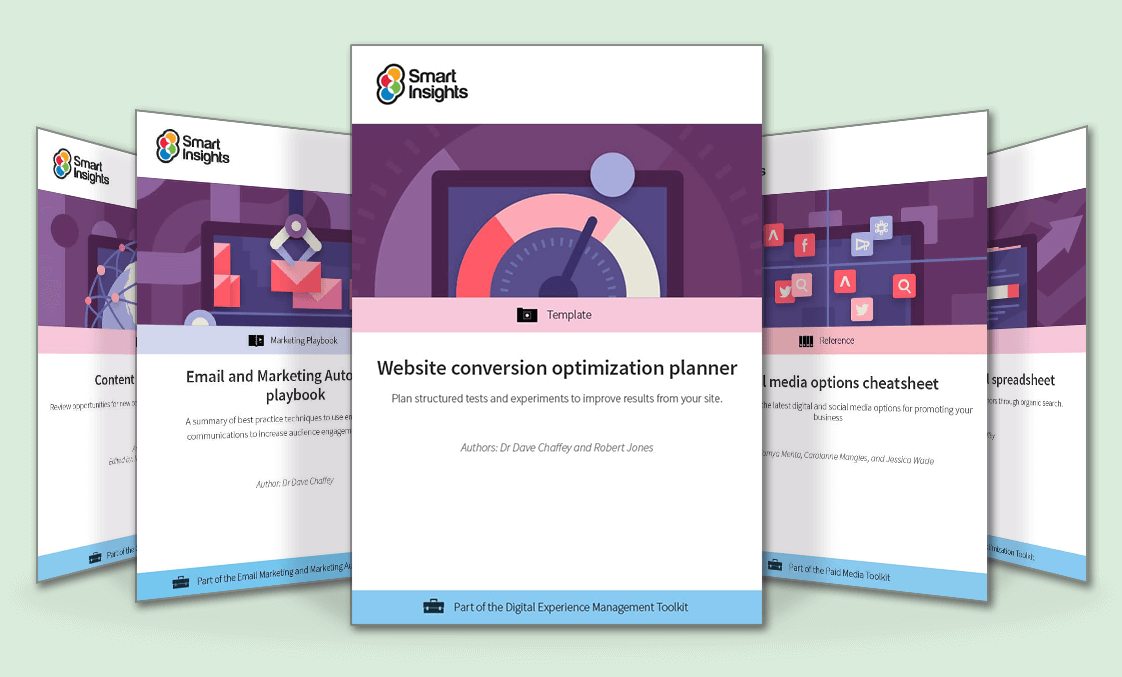Marketers who are willing to take a hands-on approach can achieve dramatic results with personalized data strategies
Regardless of what your short- or long-term business goals are, an imperative part of achieving success is knowing who your prime audience and decision-makers are, and then identifying the best way to reach them.
Major advancements in technology and data analytics have certainly helped shed some light on who ideal audiences are and how to reach them in a specific, hyper-targeted way.
Natural air freshener brand Citrus Magic, which creates sprays and air freshening products free from harsh chemicals, had a few ambitious marketing goals:
- Increase brand recognition and exposure
- Drive foot traffic
- Promote an in-store sales lift
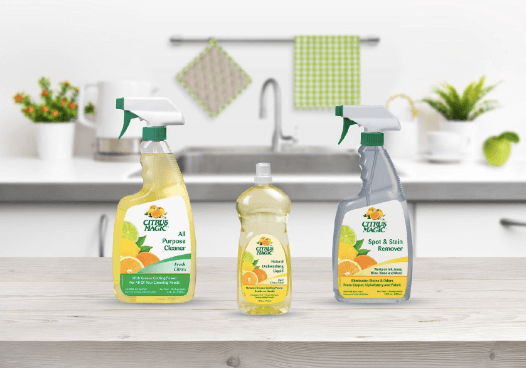
Citrus Magic approached KPITarget with goals to increase brand recognition, drive foot traffic and increase in-store sales. Image courtesy of Citrus Magic.
To help achieve these goals, Citrus Magic employed our team at KPItarget to leverage innovative data analytic techniques. While it’s not a one-size-fits-all approach, we believe that other companies looking to achieve similar goals can learn from our tactics.
Identifying hyper-specific personas
One of the first things we did when we initially approached this challenge was to take a deep dive into data analytics, which allowed us to identify unique audiences for each individual Citrus Magic product.
Going well beyond the typical demographics of age and gender was important here, as it allowed us to gain a much deeper understanding of exactly who Citrus Magic’s core audience and potential customer is, and more importantly, how likely they are to purchase Citrus Magic products.
With the information we collected we were able to develop innovative, hyper-targeted personas for a variety of audiences. The three strongest personas we identified were:
- Tech-savvy food and travel enthusiasts
- Working moms who shop for home goods
- Pet-owning females
The numbers spoke for themselves, as each persona was 24 times, 17 times and 15 times more likely to convert, respectively.
Putting in the research to get to know who’s already buying your brand, as well as those you might be missing, is crucial to the success of a highly personalized campaign. There are several ways to acquire this data, and the method you choose will vary based on your business’ wants and needs.
Fortunately, there are ample tools you can implement to assist you in your efforts. You can use website tracking to gather data, employ social listening tactics, or conduct interviews or surveys to learn who is purchasing — or could be purchasing — your product.
According to Aberdeen Research, marketers who use personas achieve 73% higher conversions (20% vs. 12%) from response to marketing qualified leads (MQL), versus companies who don’t pursue this approach.
Download our Individual Member Resource – Customer persona guide and template
We’ve created our Customer persona guide and template to inspire more use of the techniques by showing good practices, examples, what to watch for and where to find out more. The guide has been bundled with a template so creating your own personas as is easy as filling out each box with the relevant information.
Access the Customer persona guide and template
Analyzing the attributes
After we identified these three separate specific personas, we took it to the next level to explore relevant attributes for each one. This allowed us to expose the client’s products to these key groups in a way that resonated with them on a personal level.
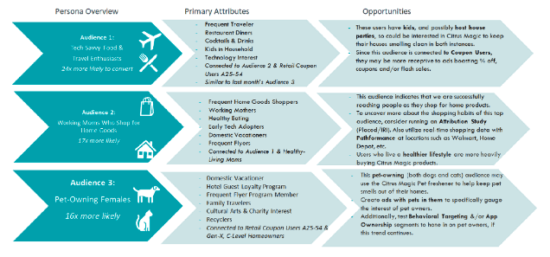
KPITarget identified the primary attributes to each target audience segment in order to personalize messaging.
The reasoning for buying Citrus Magic varied due to the audience’s different interests and attributes. Thus our approach varied as well, including what products we advertised to each group, and how to craft the messaging. Breaking down each distinct persona allowed us to identify three completely varied opportunities instead of taking a “cookie cutter” type of approach.
Taking advantage of technology
A huge contribution to the success of this campaign was MarTech. Advances in artificial intelligence (AI), targeting capabilities and location data from mobile devices allow marketers to target in a whole new way, opening up new possibilities to get hyper-specific.
Through programmatic advertising and by leveraging app data, we were able to hyper-target the personas we previously identified. We also added a geolocation layer to make things even more granular. By doing this, we were able to target each persona in very precise areas, down to when they were within a half-mile of a store that sold Citrus Magic products.
This allowed us to put Citrus Magic ads in front of the exact audiences and personas we wanted to target, while they were in or around stores that sold our client’s products, during times they were likely to be making purchasing decisions.
AI has been a buzzword in the marketing space for quite some time now, and the latest research supports the importance and growth of this groundbreaking technology. In fact, according to market research firm TechNavio, the AI market in the US is expected to grow at a compound actual growth rate of about 50% through 2021. Adding AI into your marketing plans could have a profound effect on the success of your campaigns, as it did with our Citrus Magic campaign.
Reacting in real-time
Using programmatic targeting, we continuously shifted the budget between audiences to favor the best converting audience at any given time.
AI and machine learning allowed us to see what areas of the country were converting better and allocate more of the ad spend in those places to increase the ROI on every dollar spent, in real-time. This made each dollar spent extremely deliberate and increased the opportunity to convert a consumer successfully.
Being able to continuously monitor the impact of our efforts not only maximized our ad spend, it also allowed us to share insights and recommendations with our client during key times. Producing information that is useful and current can save you money, but also increase your client’s confidence in your decision-making throughout the campaign.
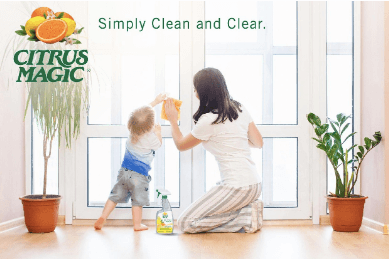
Working moms who shop for home goods was one of three target audiences for the Citrus Magic campaign. Image courtesy of Citrus Magic.
Results
By being extremely strategic and using a multi-layered approach that employed several different targeting methods, we achieved strong results for Citrus Magic, including:
- A 50% decline in CPA
- A 39% increase in conversions
- 39 million impressions within the first four months of the campaign
- A CPA under $10
These results prove how vital using multiple, highly-specific techniques can be to building business and increasing brand awareness.
Final thoughts
If you’re working with a brand that’s looking to achieve a similar outcome to Citrus Magic, consider a hyper-targeted approach. Of course your client’s brand, target audience, price point, and other factors will impact how exactly you execute, but there’s immense value if you’re willing to put the work in.
Despite the enhancements in technology, this approach isn’t something that you can just “set and forget”; it requires a significant amount of detailed research, ongoing attention, and nurturing from start-to-finish to achieve your goal.
While you may not personally be pulling the levers or actively comparing the success of one store to another, you need to remain extremely active in monitoring and supporting the technology. The payoff is well worth the effort.
Mike Rowan is the President of KPItarget, an Atlanta-based buyer-centric marketing agency. KPItarget helps growing businesses increase their touchpoints, interactions and engagement with prospects, using an arsenal of marketing tools — interactive strategy and marketing, social media strategy, branding and identity, search engine optimization, SEM & paid social media advertising, content marketing, advanced analytics, business development, and web design.





